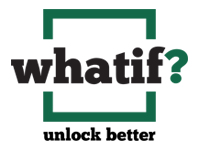
What is a meaningful conversation?
When someone feels heard and understood, trust develops, and trust is the currency of all relationships.
few months ago, I posted an article Meaningful work, relationships, recognition, and the people experience, and it struck a nerve. I received more direct messages (DMs) on it than any other post. One reader said, “I feel like sending my CEO this article to help him understand why I decided to leave after seven years with the company.” Another added, “I lost all sense of where my work and personal lives began and ended, and it never seemed to be enough. I couldn’t see a picture of success.”
At the conclusion of the article, I said we need meaningful conversations to better understand what makes a meaningful work experience. This is the elephant in the room as we try to figure out where and how we work post pandemic. From my discussions with clients and executives, it’s clear both sides are struggling with this issue with neither feeling heard and understood. They are also challenged with how to approach the subject with each other on an equal footing. The power dynamic has shifted, and with the advent of quiet quitting, a different conversation is now needed.
So, what is a meaningful conversation? First, my thoughts on what it isn’t. It’s not about advocating your position with the intent of making others understand your point of view and defending it when questioned or challenged. If your intent is to be right, then others must be wrong. When we push our view on others, the natural response is to push back. Anyone with teenagers’ experiences this daily.
A meaningful conversation is one where we start with the intent of getting a deeper understanding of what really matters to someone and why. It goes beyond what’s being said to getting at the values and beliefs that led to their perspective. It’s rooted in curiosity, empathy, and a genuine desire to understand. Rather than leading with being heard and understood, it’s leading with listening and understanding. When someone feels heard and understood, trust develops, and trust is the currency of all relationships. Two great reads related to this are, The Trusted Advisor and Humble Inquiry. Both speak of the importance of asking vs. telling to make a conversation meaningful.
What if organizations and people went into the meaningful experience discussion with the mindset that they want a deeper understanding of where the other is coming from? What if we chose leading with inquiry over advocacy? If both parties felt heard and understood, how might they respond? My belief is, armed with a deeper understanding, people move from defending strongly held positions to finding common ground. After all, we all want meaningful work, meaningful relationships, and a meaningful experience in everything we do.
Please drop me your thoughts on this post or send me a DM. All comments and feedback are welcome.


Leave a Reply